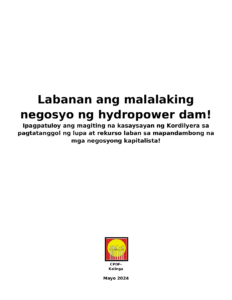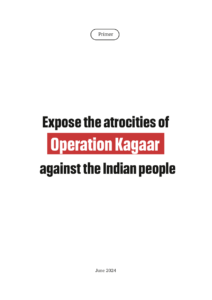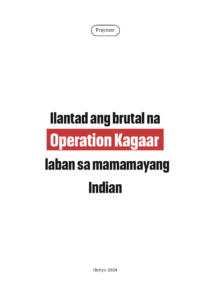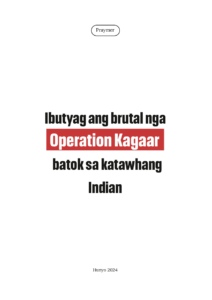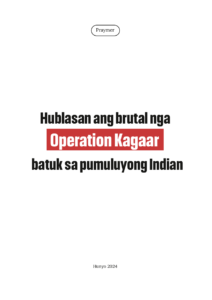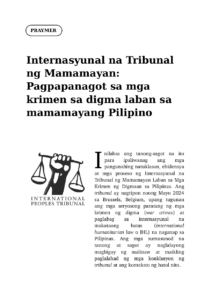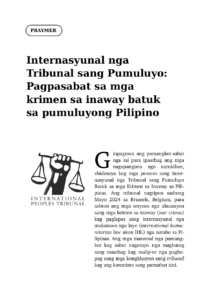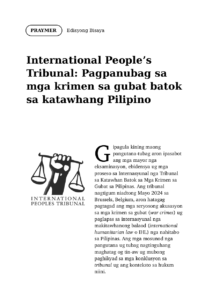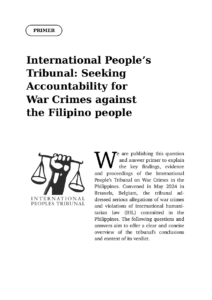12 things to know about the VFA

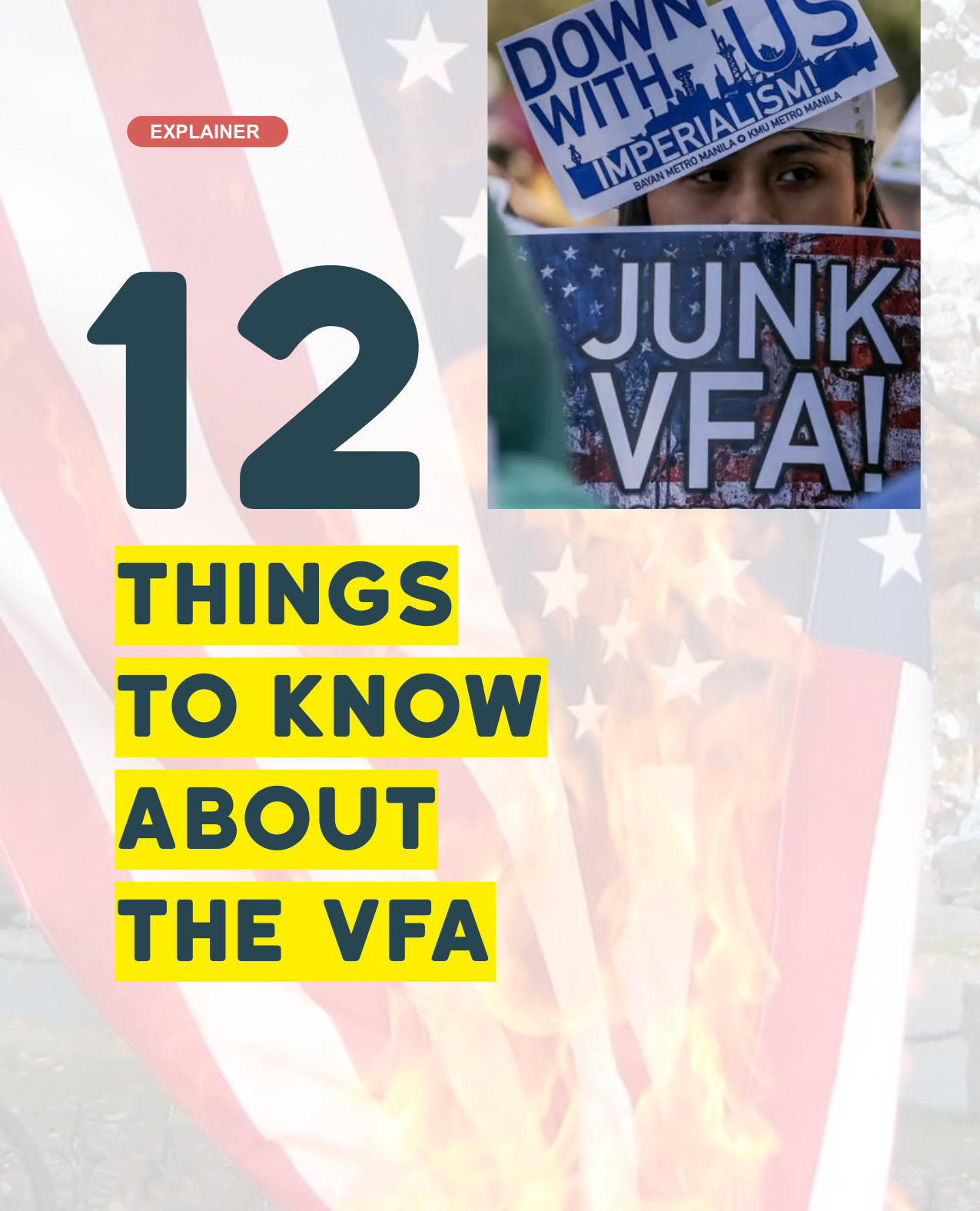
DOWNLOAD
1) The Visiting Forces Agreement or VFA is a unequal military agreement that allows the unrestricted and indefinite entry and exit of US troops, vehicles and military equipment in the Philippines. It took effect on May 27, 1999 after being ratified by the Senate under the regime of Joseph Estrada.
2) The VFA was create to replace the Military Bases Agreement a few years after it expired and the Senate abrogated it in 1991. Through the VFA, the US was afforded the right to enter any part of the land, sea and airspace of the Philippines. It transformed the entire country into a large military base.
3) The VFA is an instrument of US contempt for Philippine sovereignty because it allows the Philippines to be used as a base for a foreign force. Under the VFA, the US maintains a permanent presence of hundreds of troops in various parts of the country and its surrounding waters, to intervene in the country’s internal affairs.
4) The Philippine government considers the VFA a treaty because the Senate ratified it by a vote of 18-5. On the other hand, it is only an executive agreement for the US. Their Senate did not ratify it and their Congress only recognized it by virtue of the Case-Zablocki Act. It has many provisions that favor American troops, and disadvantage the Philippines and Filipino troops.
5) Under the VFA, American troops are automatically exempt from passport and visa-related regulations to enter the Philippines. On the other hand, Filipino troops must obtain a visa to enter the US, and the US has the right to refuse it.
6) All equipment, services and goods, military and otherwise, that the US will bring to the Philippines are exempt from taxation. On the other hand, all equipment brought by Filipino troops to the US will be subject to regular taxes in accordance with US law.
7) Under the VFA, American troops entering the Philippines are not automatically subjected to the jurisdiction of local Philippine police and courts. If an American soldier violates the local laws of the Philippines, the Philippine government still needs to request the US’s permission to have jurisdiction over the offender.
This became a license for American troops to brazenly commit crimes such as beatings, rapes and murders. These crimes include the killing of transwoman Jennifer Laude by an American soldier in 2014 and the rape of Filipina “Nicole” in 2005.
8) The US military has the right to discipline Filipino troops and ask the Philippine military for jurisdiction over the trial and imprisonment of guilty Filipino troops. Filipinos convicted of crimes in the US will be subjected to US laws and imprisoned in US jails. In the Philippines, the guilty American trooper will be detained in special facilities agreed upon by the US and the Philippines.
9) The VFA is among the lopsided military agreements that the US is using today to drag the Filipinos into its war provocation against China.
10) In 2014, in conjunction with the VFA, the Enhanced Defense Cooperation Agreement was signed which legitimized the permanent presence of American troops and their war equipment within AFP military camps. There are now at least nine “agreed locations” in the Philippines where the US has military bases. It bypassed the requirement of obtaining a 2/3 vote from the Senate for the long-term basing of foreign troops in the country.
11) Through the VFA, American troops are free to roam Filipino communities and intervene in the civil-military and combat operations of the Armed Forces of the Philippines. This is demonstrated in the ostentatious civil-military that is part of its war games such as Balikatan. Their hidden presence was meanwhile exposed in internal security operations like the one that took place in Mamasapano in 2015.
12) The VFA deprived the Philippine state of its right to know the activities of US troops and its imported materials, including dangerous nuclear weapons. It gave American troops freedom to exploit and plunder the country’s natural resources and ignore the rights and livelihood of Filipinos in their training, basing and rest and recreation.

